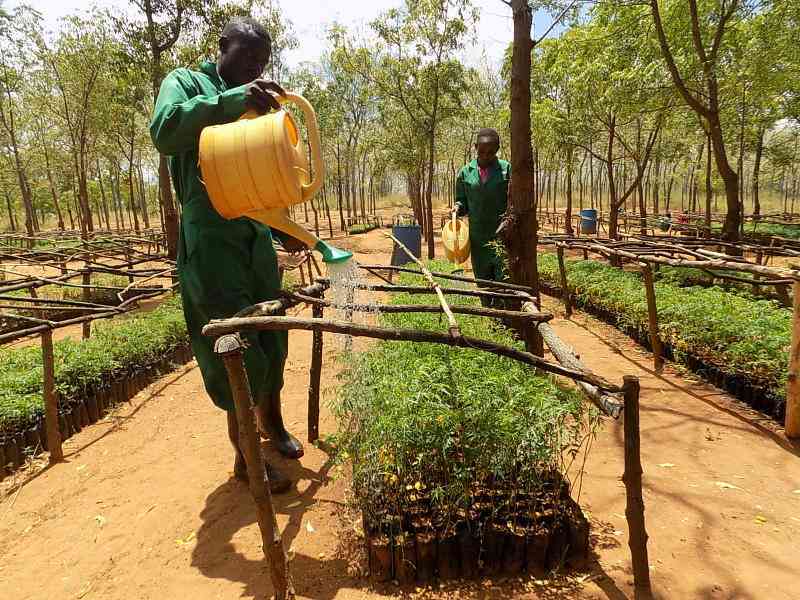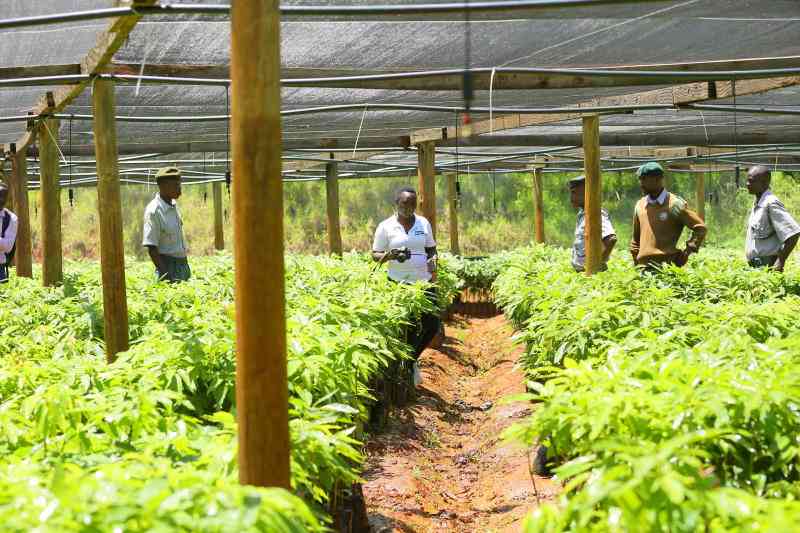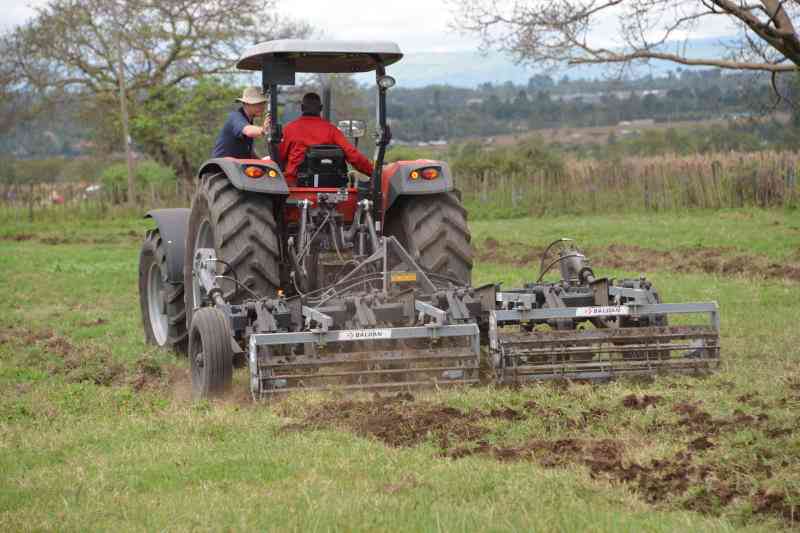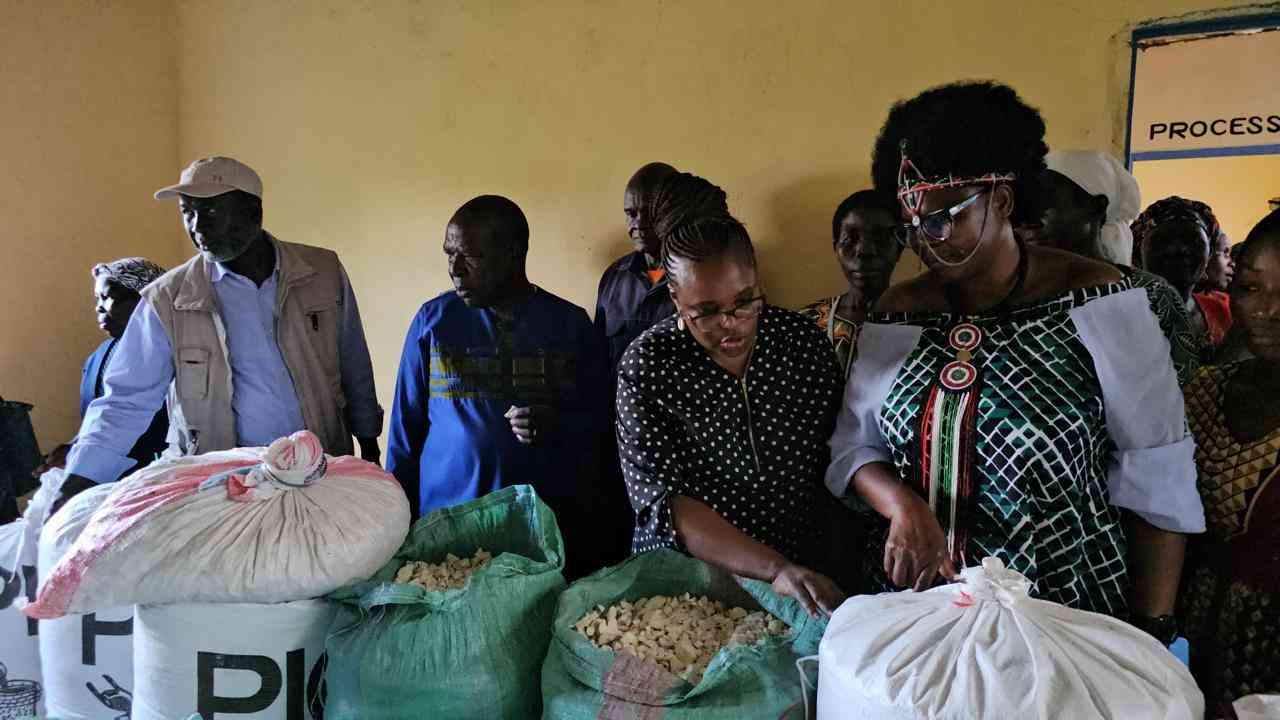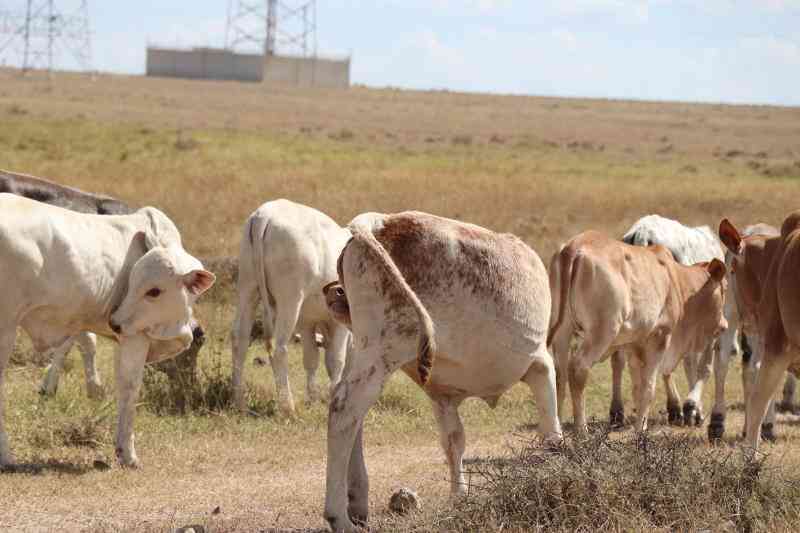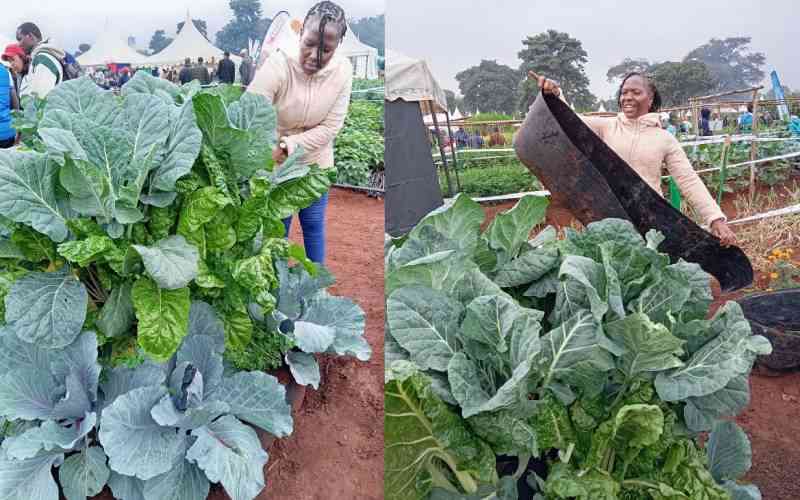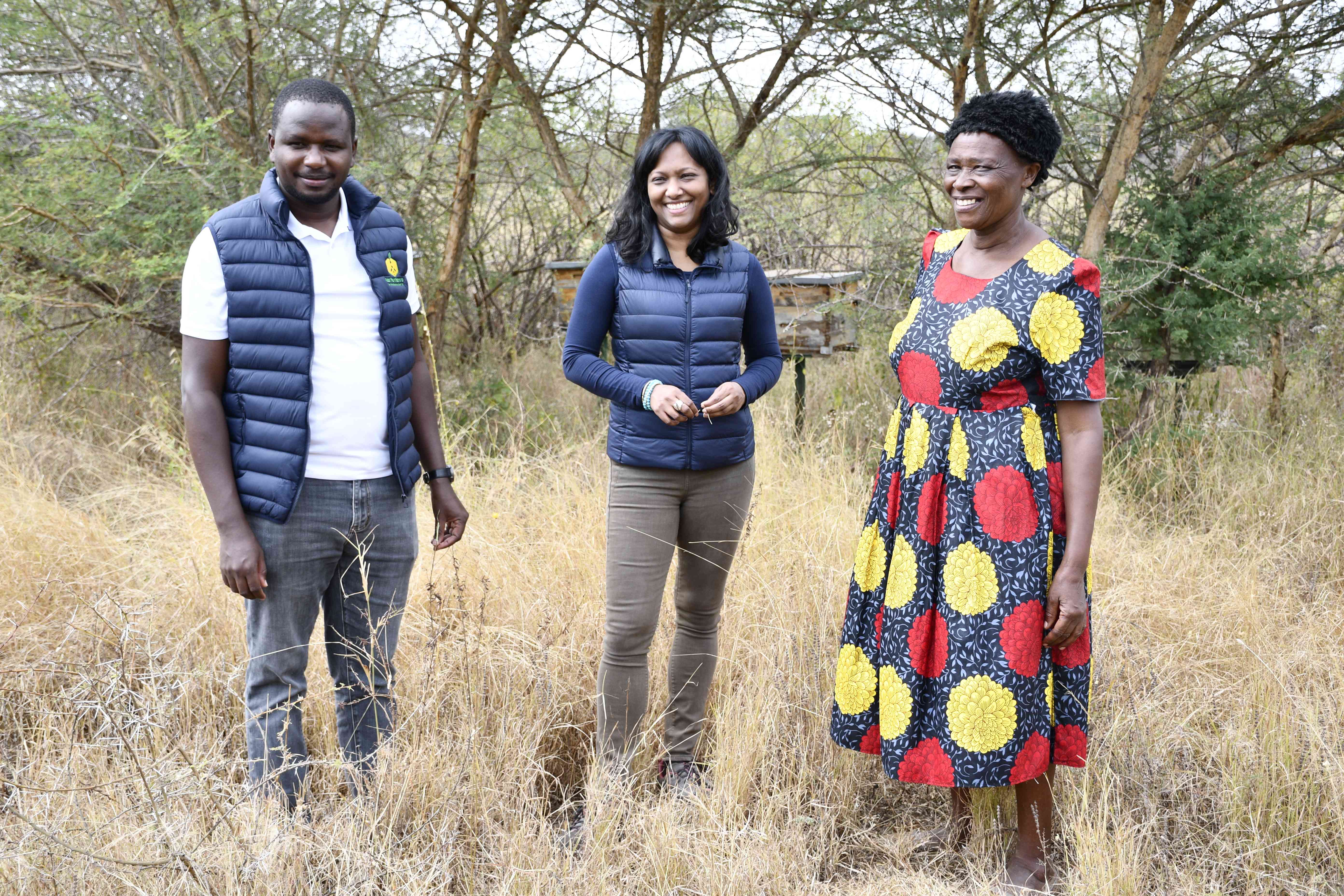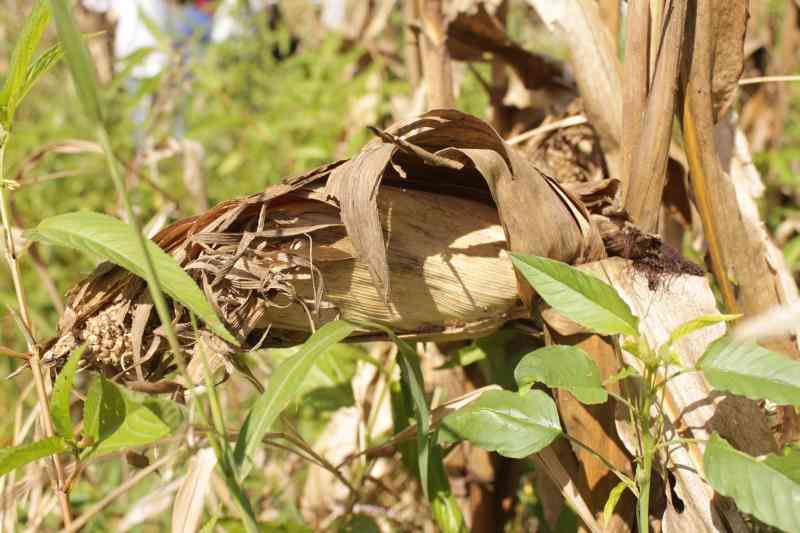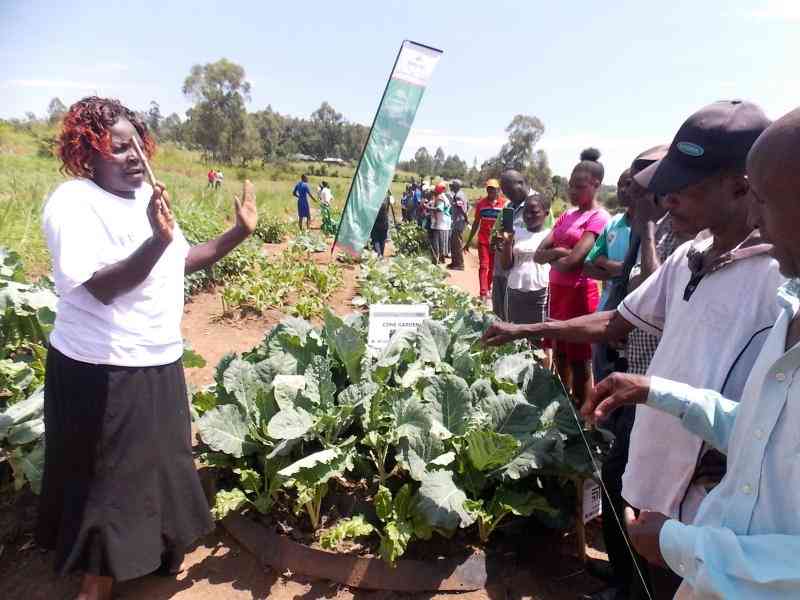
Flora Wambia, Ripple Effect Kenya Peer farmer trainer, training farmers new farming skills during Farmer's field day in Mumias East on December 6, 2023. [Benjamin Sakwa, Standard]
At just 28 years old, Florah Wambia became a widow after her husband was involved in a grisly road accident in 1995.
The couple had been blessed with four children at the time Wambia's husband died. Life became unbearable and the mother of four was unable to fend for her family.
Left with no choice, she resorted to selling chang'aa, an illicit brew, to put food on the table, something that put her at loggerheads with the authorities.
"It was the only way out to ensure my children had food and attended school like their peers," she recalled.
She became a renowned chang'aa brewer between 1995 and 2008 in Malaha township, Mumias East Sub-county.
Tired of the cat-and-mouse games with the police, Wambia joined the Abamachama Women Self-Help Group.
"All I wanted was to take a loan and start an alternative business," she told Smart Harvest.
She added: "After a few months, Heifer International under the 'Send a Cow Project' came and trained the group members on climate-smart agriculture."
Wambia was among the beneficiaries. "They trained me on animal management, social development, and sustainable organic agriculture and after graduating, they absorbed me as a Trainer of Trainers (ToT) to train other farmers on better farming practices."
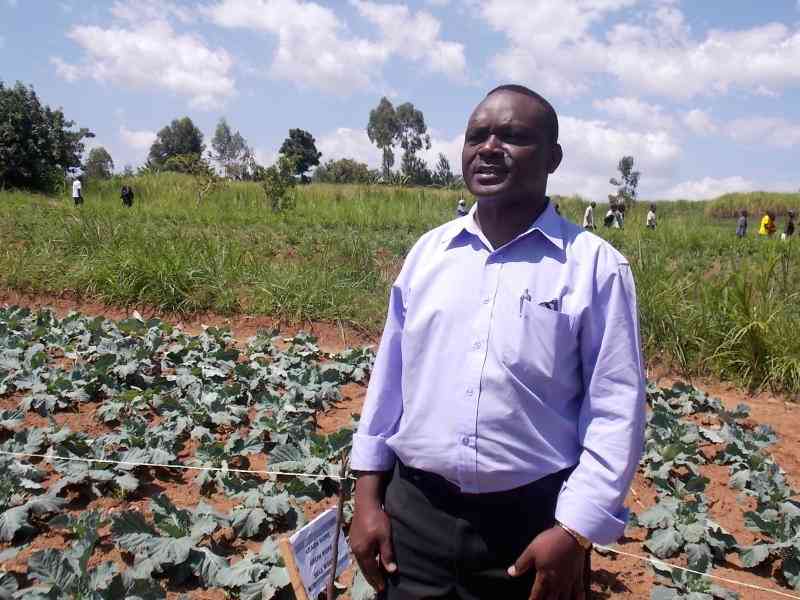
Titus Sagala, Country Director Ripple Effect Kenya during farmers field day in Mumias East on December 6, 2023. [Benjamin Sakwa, Standard]
Send a Cow has since rebranded into Ripple Effect after it expanded its scope of services.
Ms Wambia was given a dairy cow and seedlings for indigenous vegetables to start her off and to date she says "the project got me out of a hole that I was in."
"I have been able to take all my four children to school. Two are engineers, one is an agronomist and the other is a mechanic. They can now fend for themselves," said Ms Wambia.
She added: "I am now a poultry farmer and grow indigenous vegetables for commercial purposes, which gives me extra money to sustain myself. The dairy cow I was given has since given me five heifers."
According to the widow, the dairy cows were not producing enough milk as required until 2018 when they were introduced to the Grass to Cash Project by Ripple Effect, and after a two-year trial, milk production increased.
"My dairy cow used to give me two litres of milk daily, but after we were introduced to the new improved variety of grass, milk production increased to 18 litres per day, translating to Sh1,080 per day or Sh32,400monthly per cow," said Ms Wambia.
The varieties of grass include Bracharia and Panicum. Ms Wambia now manages 580 farmers spread across 14 self-help groups.
According to Titus Sagala, the Ripple Effect Kenya country manager, the Grass to Cash project is being implemented in Kakamega County targeting 25,000 farmers.
Mr Sagala said it's a three-year project funded by the Federal Ministry of Economic Cooperation and Development (BMZ) - Germany in partnership with the International Centre for Tropical Agriculture (CIAT).
The donors funded a two-year research programme before it was rolled out fully after it proved viable following the introduction of new forages for small-scale farmers, mainly Bracharia.
"The project strategy is to improve forage varieties, diversity and conservation to provide for year-round low external input animal feeds that contribute positively to the smallholder farm system," said Mr Sagala
He said the use of crop residues and forages inedible to humans helps to make the whole farm system more efficient and more resilient.
"Fodder crops and trees are used in soil and water conservation structures and improved forages may also be nitrogen-fixing and sequester soil carbon hence mitigating climate change challenges," said Mr Sagala
The project targets dairy farmers within Kakamega and neighbouring counties. It has been credited with increasing milk production in the region.
The project also addresses land degradation and the loss of nutrients in a situation of land use pressure where there are potential food or feed elements of competition, soil fertility depletion, and inadequate access to animal-sourced foods.
"We have already reached to date 19,300 people with at least 11,000 acres of grass planted and farmers have succeeded in increasing their milk production due to the use of these grasses," said Mr Sagala
Wycliffe Onyango, a peer farmer trainer at Ripple Effect Kenya and a beneficiary of the programme said with his four dairy cows, he initially struggled with the "expensive" commercial feeds and poor quality napier grass but after joining the Grass to Cash project, milk production has increased from four litres per day to 14 litres.
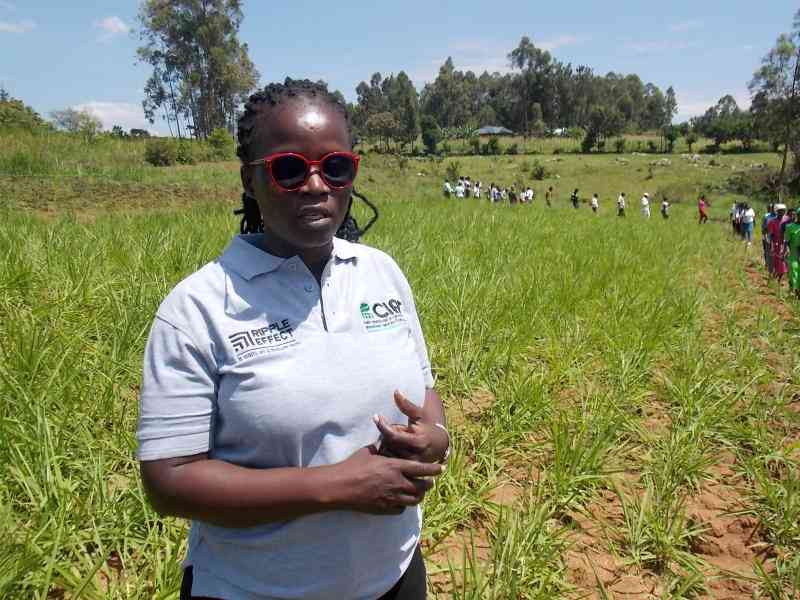
Ruth Odhiambo Senior Assistant Research Scientist, Alliance of Biovercity and CIAT during Farmers field day in Mumias East. [Benjamin Sakwa, Standard]
Senior Assistant Research Scientist Alliance of Bioversity International and the International Center for Tropical Agriculture (CIAT) Ruth Odhiambo said about 80 per cent of farmers in Western Kenya had for a long time relied on napier grass despite having serious disease problems and lacking requisite proteins.
Ms Odhiambo said that when they introduced the new variety of grasses, which has a protein content of between 14-18 per cent, milk production improved thus increasing earnings by the smallholder dairy farmers.
"When it's grown, the seeds take two to three weeks to germinate and first harvest after the first three months, thereafter after every two months," said Ms Odhiambo, adding 'the grass can be harvested and be conserved through the preparation of hay and silage, then feed the animals later.
 The Standard Group Plc is a multi-media organization with investments in media platforms spanning newspaper print
operations, television, radio broadcasting, digital and online services. The Standard Group is recognized as a
leading multi-media house in Kenya with a key influence in matters of national and international interest.
The Standard Group Plc is a multi-media organization with investments in media platforms spanning newspaper print
operations, television, radio broadcasting, digital and online services. The Standard Group is recognized as a
leading multi-media house in Kenya with a key influence in matters of national and international interest.


